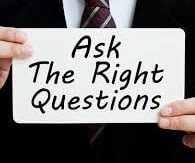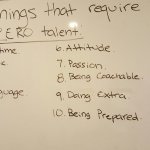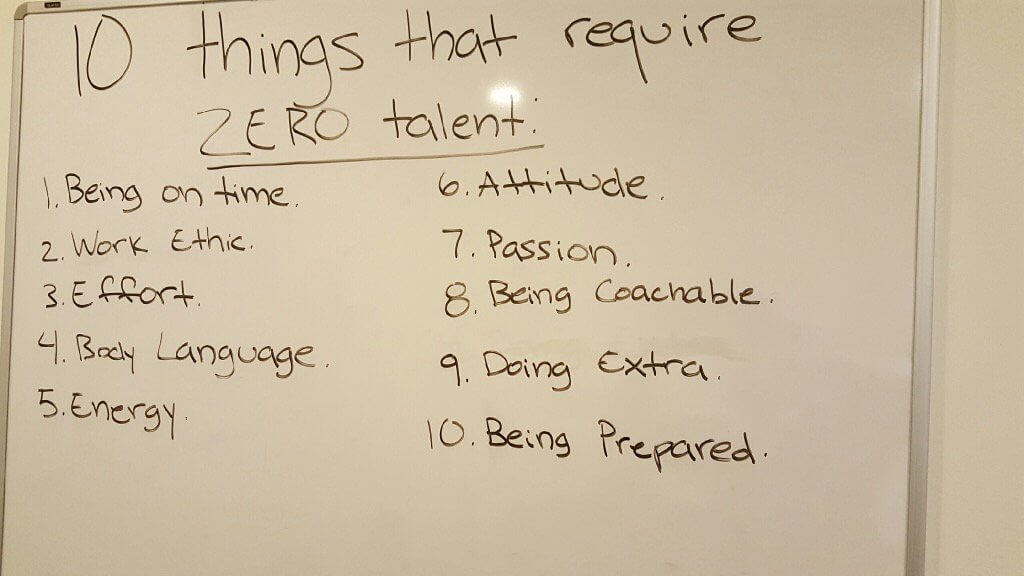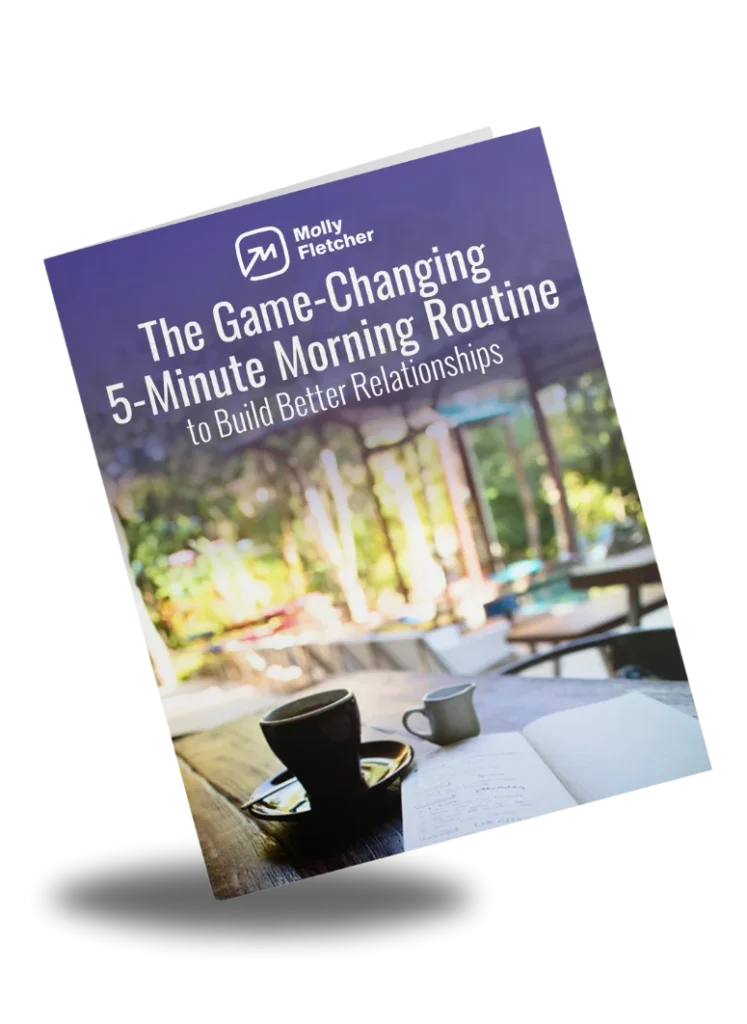So the end of the calendar year is quickly approaching, which means year-end performance reviews are just around the corner. Whether you’re a leader and you’re giving the review or an employee who is receiving the review, you might be feeling a bit anxious?
I remember these meetings so distinctly. There were a lot of nerves because not only are you going to find out if you’ve performed well this year, but you also will discover if you will get that bonus or a raise you’ve been hoping for. When I reflect on the year-end performance reviews of my past, I find them a bit unbelievable now. Companies are really waiting until the end of the year to provide feedback to their employees?
Great Coaches Don’t Wait for Performance Reviews
As a former sports agent, I tend to live inside a metaphor of sports. Can you imagine a football coach calling a timeout and knowing exactly what the gap is and saying, “Hey, look, guys, I know what’s going on, but I’m going to save feedback for the end of the game.” That would be crazy, right?
Or a basketball coach, she pulls in her players and knows that they need to shift from zone to man-to-man, but instead says, “Hey guys, let’s set a meeting for the end of the season so I can share feedback on how you can improve.” That would be completely insane, right? So why do we do this in business sometimes? Why aren’t we giving consistent feedback along the way?
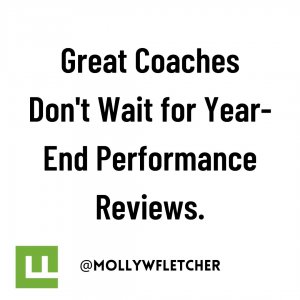
There’s a Difference Between Feedback and Criticism
Here’s the thing, there is a huge difference between criticism and feedback.
As a former sports agent, I know that athletes have an advantage when it comes to receiving tough feedback because they are used to getting critiqued. In sports, it’s common practice-win or lose- to break down the film and seek feedback on areas where you can improve. It’s understood that the feedback is a way towards growth, not a personal criticism. We need to apply that athlete mindset to the workplace, and embrace feedback.
In the corporate world, many leaders fear their teams don’t want to have tough conversations. However, the truth is if we can teach our teams to recognize the difference between feedback and criticism we can help them get better.
Care Deeply and Be a Source of Consistent Feedback
When we create a culture of feedback, we build a better team. I had New York Times bestselling author, Kim Scott, on my podcast. During our conversation, she shared that as leaders we must care deeply, but challenge directly to create a culture of radical candor.
So here would be my challenge to you, recognize the opportunity that consistent feedback will provide for you and your team. Care deeply, and be a source of consistent feedback. Instead of saving your feedback and resentments for end-of-year performance reviews, call some timeouts. Pull your team in at halftime and provide the feedback then. Give them feedback in real-time, so that they can go out for that second half even better.
That is how you’ll help your team up their game every day.
More Resources For Leaders
-
Episode 71- Kim Scott on How To Be a Better Boss with Radical Candor
-
“Mama Jan” Smith’s Advice on the Best Way to Deliver Tough Feedback
The Molly Fletcher Company inspires leaders, teams, and organizations to kick-start growth. A keynote speaker and author, Molly draws on her decades of experiences working as a sports agent. The Energized Leader Training helps you and your team align your energy with the important and avoid costly burnout. Game Changer Negotiation Training workshops teach business people the framework for successful negotiating so that you can close more deals while building stronger relationships. Her Leadership Huddles are a monthly group coaching community to guide you towards your full potential. Sign up here to receive our weekly newsletter and subscribe to the Game Changers with Molly Fletcher podcast on iTunes.






